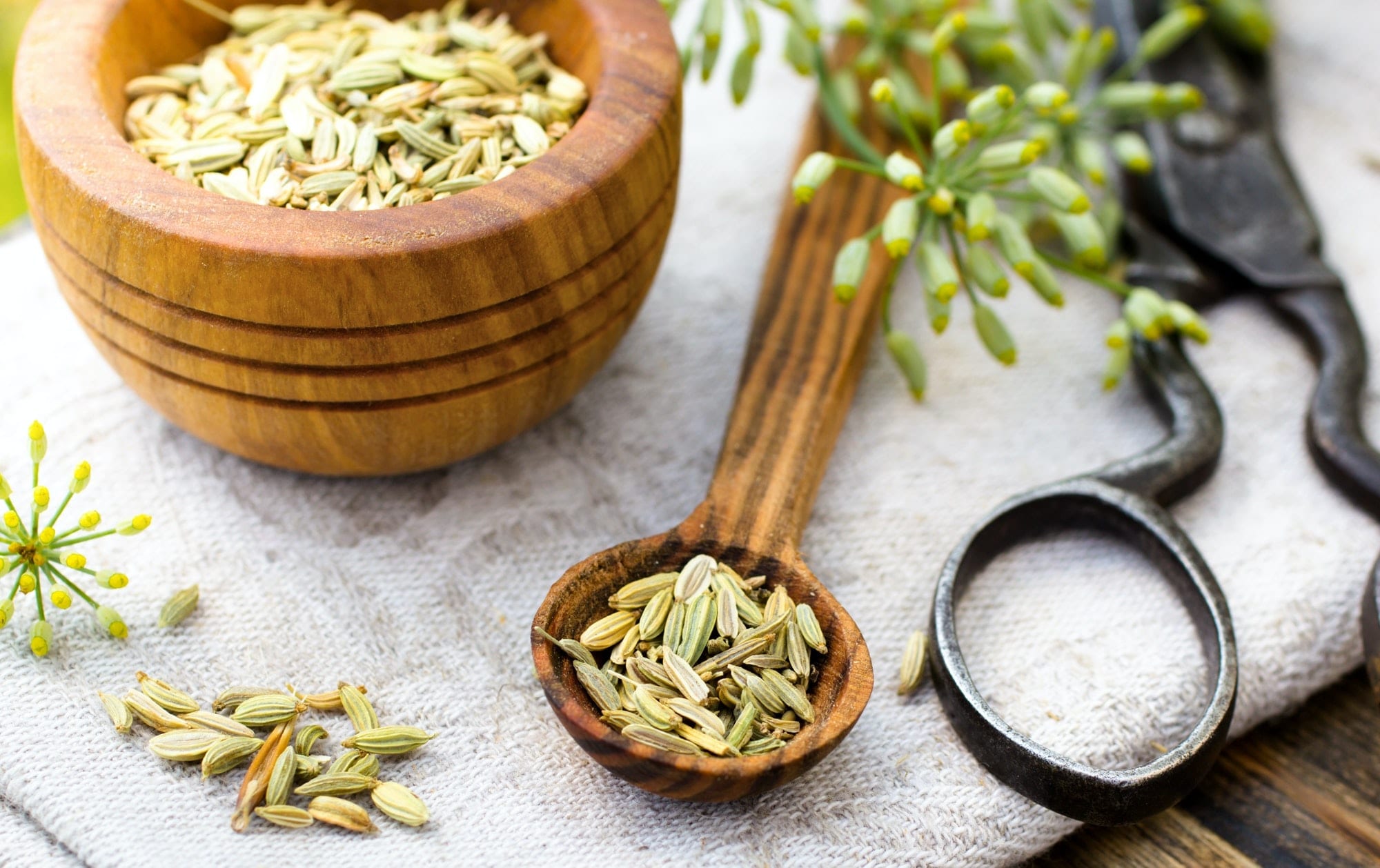
Fennel is a green coloured bulb with protruding stalks and is a herb that belongs to the carrot family. It is used as a vegetable in cooking or in salads.
Fennel seeds (also known as saunf in Indian cooking) are the dried seeds of the plant and look similar to cumin seeds but are greener rather than the browner colour of cumin.
They have an aniseed or liquorice type aroma and flavour, although they are less strong in taste and smell than liquorice.
The seeds are used in sweet and savoury recipes and are particularly popular in Indian and Middle Eastern cooking.
Background
Fennel seeds are native to the Mediterranean but Ancient Egyptians used them for both food and medicine, and the Chinese used them as a remedy for snake bites.
During the middle ages fennel seed was hung over doorways to protect the occupants from evil spirits!
Fennel is also associated with the marathon as the battle of Marathon was allegedly fought in a field of fennel, and Pheidippides who ran for two days to deliver his message to gather soldiers carried a fennel stalk with him.
Uses for Fennel Seeds
Fennel seeds are added to Indian dishes either whole or ground but if you chose to use them whole then crack the seeds with the blunt edge of a knife, or the bottom of a pan, to allow the fragrant oils to be released during cooking.
Whole seeds fennel seeds can also be dry fried to release their aroma prior to putting them into your dish. They can also be ground using a pestle and mortar.
Caraway seeds or dill are a good alternative if you do not have fennel seeds.
Fennel seeds add a subtle and fragrant sweetness to dishes and sauces and in Indian cooking are mostly used in seed form and are also used for masala (spice) mixes and in pickles or chutneys.
Roasted seeds are also chewed as an after dinner ‘mint’ and are sometime given to diners in Indian restaurants following their meal, as a digestive.
They are also a key ingredient in five spice powder.
Medicinal uses
Fennel has a long history of use as an aid to losing weight, and the seeds are sometimes eaten to stave off hunger.
In traditional medicine fennel can be used to encourage menstruation and lactation.
It is also used to treat indigestion and flatulence, and also to relieve catarrh.
The oil from the seeds is an antioxidant, antimicrobial an antispasmodic and stimulates gastrointestinal transit.
However, it is not recommended for use in pregnant women and small children due to the possibility of toxicity in infants.


Thank you! I’m encouraging a local bakery here (San Diego) to develop an Indian-inspired croissant with a “wash” of cumin, fennel and a touch of turmeric.
Sounds delicious, send us some pictures and a review if they do and we will publish it.